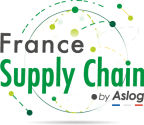Engineer - Industrial Engineering Department
École nationale des ponts et chaussées - Champs-sur-Marne (77)

Engineering training focused on modeling, data science and optimization to design sustainable industrial systems. Dual scientific and managerial skills, close to the industrial field.
Admission
Eligibility criteria
- The program is designed for École Nationale des Ponts et Chaussées engineering students from the second year upwards, as well as for students from partner schools in France (e.g. École Polytechnique, ENS, etc.) or abroad as part of double degrees, academic exchanges or co-accredited masters programs.
- For École students, access is based on motivated wishes, academic results from 1ʳᵉ year, and the project's consistency with the department's objectives.
- External students are admitted on the basis of an application including transcripts, a letter of motivation and, in some cases, an interview, depending on agreements with partner schools.
Admission process
- The admission process varies according to the candidate's profile.
- For engineering students at the École nationale des ponts et chaussées, placement in the Industrial Engineering department takes place during the first year, on the basis of justified wishes and an academic file, according to a timetable set by the school (generally in spring).
- For external students (French or international partner schools, double diplomas, co-accredited masters programs), admission is by application (transcripts, letter of motivation, interview if necessary), with several application sessions organized during the year, in conjunction with the International Relations and Pedagogical Departments.
Training costs
- 3,800€ per year for the engineering curriculum
Where students come from
- The majority of students in the Industrial Engineering department come from France, but the program is also welcoming a growing number of international students as part of double degrees, academic exchanges or partnerships with partner institutions.
Teaching
Domains
- Supply Chain
- Logistics
- Transport
- Purchasing
- Digital
Main themes
- Data Science and Artificial Intelligence applied to industry,
- Optimization and decision support,
- Decarbonization of industrial systems and energy transition,
- Industry of the future,
- Complex systems engineering,
- Data Science,
- Artificial intelligence and intelligent systems applied to industry,
- Optimization, decision support and management of production and supply chain systems,
- Industrial decarbonization, energy transition and robotics for the industry of the future.
Organization
Initial curriculum
- The course includes two periods of work experience:
- Short work placement
Duration: 10 weeks, between June and August. - Long-term internship
Duration: 10 to 12 months, starting in June,
- Short work placement
- Objective: as an alternative to the short internship, this must last at least 43 effective weeks, excluding vacations. A final-year project (PFE) is also carried out in the third year, lasting a minimum of 17 weeks between February and July.

- Type of organization : Engineering school
- Level of diploma obtained: Bac +5
- Language: 100% French
- Ranking: QS WORLD UNIVERSITY RANKINGS® 251-275
Ranking: L'Usine Nouvelle 4ᵉ au classement des écoles d'ingénieurs 2025
Ranking: Figaro Étudiant 3ᵉ au classement 2025 des meilleures écoles d'ingénieurs post-prépa
- Accreditations/labels: CGE (Conférence des Grandes Écoles), CTI (Commission des Titres d'Ingénieurs), HCERES (Haut Conseil de l'Évaluation de la Recherche et de l'Enseignement Supérieur)
Standardized European credit system facilitating the comparison and equivalence of diplomas within the European Union.
Set up in 2001, the CEFDG assesses the quality of business school courses, guaranteeing quality control of Master's degrees, under the supervision of the Ministries of the Economy and Higher Education.
Awarded to certain Bac +5 diplomas, issued by the French government on the recommendation of the CEFDG, it facilitates European mobility without being confused with the national Master's degree, reserved for French universities.
A Bac +6 diploma, accessible after a Bac +5 or an M1 with 3 years' experience, aimed at acquiring expertise or dual skills, with a compulsory internship and strong professional involvement.
Source: Conférence des Grandes Écoles.
A Bac +5 diploma, accessible after Bac +4, focused on an international career. It includes 50% foreign-language teaching, 450 hours of classroom time and a minimum 4-month internship.
Source: Conférence des Grandes Écoles.
1-year professional training program for experienced executives with 6 years' experience (10 years for the Executive MBA), often part-time and continuing education, unregulated but accredited by the AMBA for the best programs.
It concerns the school as a whole (operations, pedagogy, premises, teachers), but does not certify diplomas, a role reserved for the Visa.
Lists all state-recognized diplomas, titles and certificates with official professional value. It guarantees that the certifications listed meet the needs of the job market.
Enables anyone in employment to obtain a professional qualification (diploma, title or certificate) by valorizing their experience, whether professional or extra-professional. The certification must be registered with the RNCP.
Source : France travail
Awarding of a diploma by a state-recognized private establishment after 5 years of existence, following an inspection verifying the quality of the training, admission and award of the diploma.
This American label, created in 1916, is an accreditation that rewards business schools for the quality of their management training.
Source : Dimension Commerce
A British label guaranteeing the quality of leading-edge executive programs offered by business schools. By 2022, there will be 20 AMBA-certified schools in France.
Association (under the French law of 1901) of leading engineering, management and multiple or specific higher education schools, all recognized by the French State, awarding a diploma of at least 5 years' study after the baccalauréat and conferring the grade of Master, as well as, for some of them, a national diploma.
Source: Ministry of Higher Education and Research.
Association of engineering, management and higher education schools, awarding state-recognized Master's-level degrees after at least 5 years of post-baccalaureate study.
Source: Ministry of Higher Education and Research.
National accreditation standards for training organizations wishing to prepare and present candidates for professional certifications in the metallurgy branch.
Since 1934, this independent organization has been mandated by French law to evaluate all engineering training programs, develop the quality of training and promote the title and profession of engineer in France and abroad.
Source : CTI
Qualification leading to the signature of a multi-year contract between the State and the recognized institution, setting strategic objectives to meet national priorities in higher education and research.
Source: Ministry of Higher Education and Research.
New label from EFMD (EFMD Programme Accreditation System) launched in August 2019, which allows an EQUIS-accredited institution to focus on one of its programs that it deems particularly strategic.
Source : Studyrama
Created in 1997, this European label is awarded by EFMD to business and management schools for a period of 3 or 5 years.
Independent public authority assessing higher education and research structures, and supporting quality improvement in France through analysis, evaluation and recommendations.
Source : HCÉRES.
CFA organizations recognized by leading engineering schools to train engineers through work-study programs.
A competitive cluster for transport, mobility and logistics based in the Hauts-de-France region.
This recent label enables CGE members to gain recognition for their expertise in digital technology, particularly in the field of teaching and distance learning, both in France and abroad.
Source : CGE
This service certification awarded by SGS is recognition by an independent third-party organization of the company's commitment to offering its customers quality services, meeting the characteristics defined in a set of standards.
Source : SGS
Mark certifying the quality of the process of training, skills assessment, VAE and apprenticeship training providers, guaranteeing their compliance with quality requirements.
Source: Ministère du Travail, du plein emploi et de l'insertion.
A 4-module course leading to certification in industrial flow and operations management, sharing internationally recognized methods and tools for mastering logistics processes.
A 132-question reference framework and audit methodology for assessing and improving supply chain performance, accessible via auditor certification and a junior version for students.
This unique standard for assessing and certifying Supply Chain skills enables all managerial professionals to validate their skills and identify potential areas for development.

